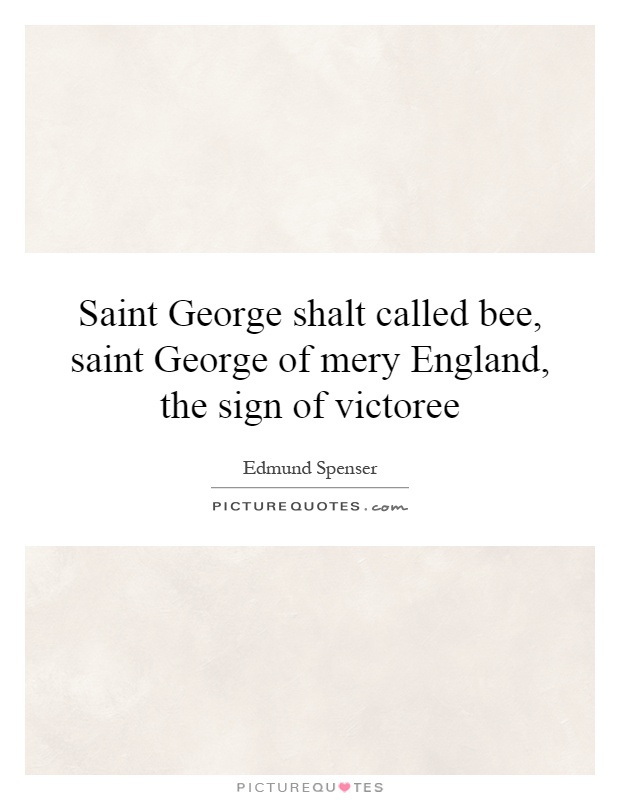Saint George shalt called bee, saint George of mery England, the sign of victoree

Saint George shalt called bee, saint George of mery England, the sign of victoree
In the context of Edmund Spenser, the line "Saint George shalt called bee, saint George of mery England, the sign of victoree" holds significant meaning and symbolism. Spenser, a renowned English poet of the Elizabethan era, often used allegory and symbolism in his works to convey deeper messages and themes. In this particular line from his epic poem "The Faerie Queene," Spenser is invoking the image of Saint George as a symbol of England's strength, valor, and triumph.Saint George is a legendary figure in English folklore, known for his bravery and chivalry in slaying a dragon to save a princess. He is often depicted as a symbol of England's national identity and pride, representing the virtues of courage, honor, and righteousness. By calling Saint George the "sign of victoree," Spenser is emphasizing the idea that England's strength and resilience will ultimately lead to victory in the face of adversity.
The use of the archaic spelling "shalt" and "bee" in the line adds to the poetic and timeless quality of Spenser's verse, evoking a sense of tradition and heritage. The repetition of "saint George" further emphasizes the importance and reverence of this legendary figure in English culture.
Spenser's choice to refer to England as "mery England" also adds a sense of joy and celebration to the line, suggesting that Saint George's triumphs bring happiness and prosperity to the nation. The use of the word "mery" conveys a sense of festivity and merriment, highlighting the idea that England's victories are a cause for rejoicing.
Overall, this line from "The Faerie Queene" encapsulates Spenser's admiration for Saint George as a symbol of England's strength and resilience. Through his poetic language and imagery, Spenser celebrates the virtues of courage and honor embodied by Saint George, portraying him as a beacon of hope and victory for the nation.












 Friendship Quotes
Friendship Quotes Love Quotes
Love Quotes Life Quotes
Life Quotes Funny Quotes
Funny Quotes Motivational Quotes
Motivational Quotes Inspirational Quotes
Inspirational Quotes